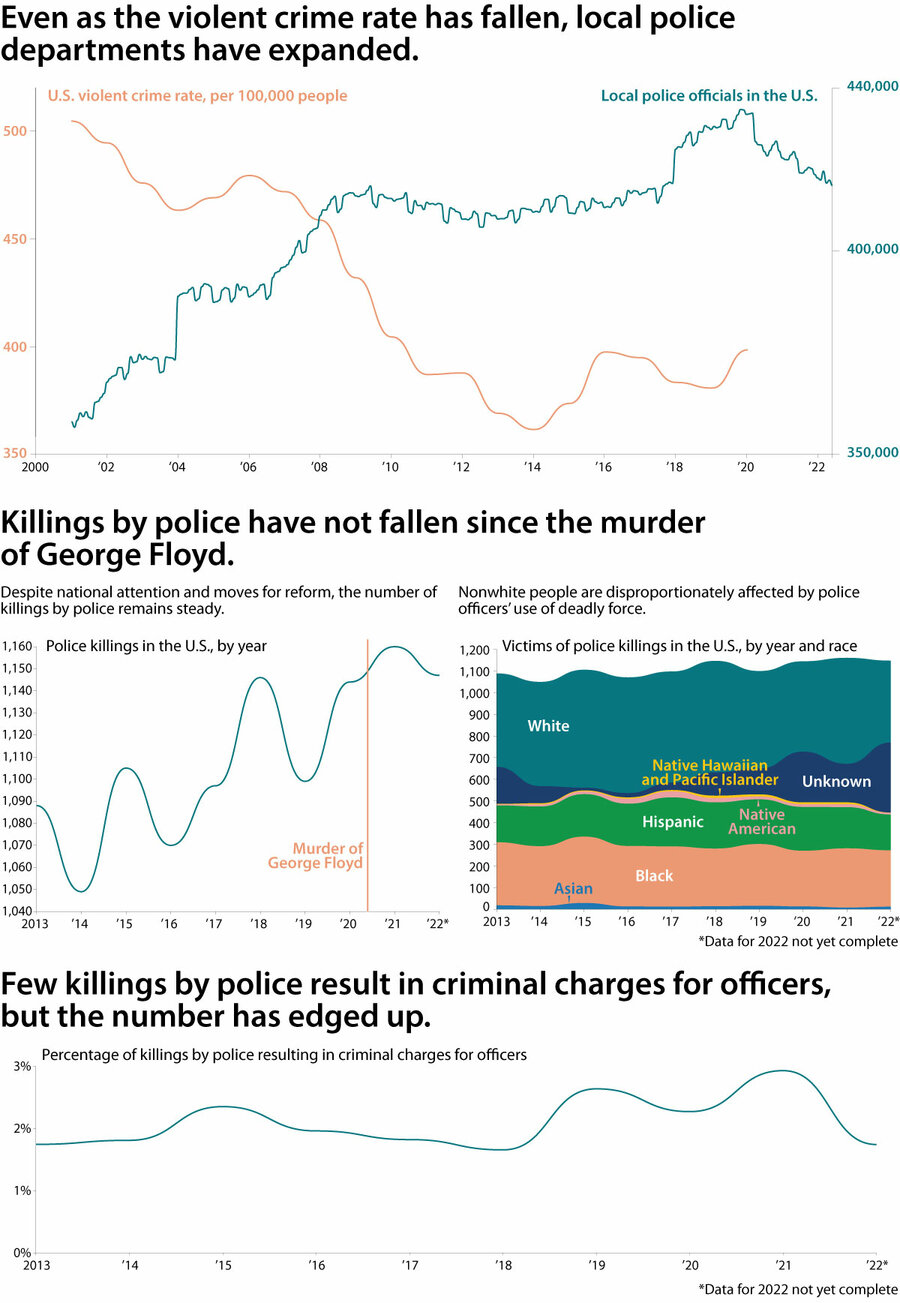How common are killings by police? How often are officers prosecuted?
Loading...
When Chicagoan Laquan McDonald died in a hail of bullets after fleeing police in 2014, the city refused to release dashcam footage. What it showed was one officer shooting a retreating Mr. McDonald, and then pumping over a dozen more bullets into the teenager’s body as he lay on the ground.
As the director of the Chicago Law School’s Civil Rights and Police Accountability Project, Craig Futterman spent a year in court alongside his students demanding the release of the footage. A judge finally agreed. On the eve of the release, an officer was charged in Mr. McDonald’s killing. Sixteen officers were implicated in a cover-up. The police commissioner lost his job.
Hopes that such transparency would improve accountability and curb police brutality more broadly have in part dwindled. Video of five officers beating a motorist named Tyre Nichols to death in Memphis, Tennessee, was “dispiriting,” to say the least, Professor Futterman says.
Progress is piecemeal. Transparency alone has not led to the progress that many hoped for. But the perhaps-rising trend of officers being held to account for unjustified violence – as happened in Memphis, by admission of the police chief there – may have more fundamental impacts in the long term. Our graphics offer context on the challenges.
“It’s a weird kind of progress: The videos are now out there, because this is ultimately trying to stop that violence and trying to address the underlying racism and fundamentally change these systems so that they actually promote safety and prioritize the sanctity of everybody’s life,” Professor Futterman says. “But nationally, police are killing at the same rate or even more than they have ever killed. It’s a kind of Pyrrhic victory.”
Federal Bureau of Investigation, U.S. Bureau of Labor Statistics, Mapping Police Violence








